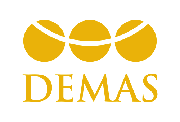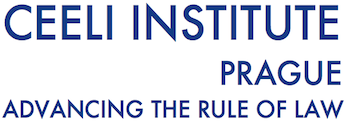The Villa Grébovka Celebrates 150 Years: 1871–2021
On August 5th, the CEELI Institute partnered with Open House Praha and opened its doors to the public for comprehensive tours of the Villa Grébovka.
Building The Rule Of Law: Firsthand Accounts Of A Thirty-Year Global Campaign
The CEELI Institute is proud to have collaborated with the American Bar Association’s Rule of Law Initiative (ABA/ROLI) in producing a comprehensive chronicle of the history and development of the CEELI project (the Central and East European Law Initiative) following the fall of the Berlin Wall in 1989. CEELI, which grew to become the largest pro bono project the ABA had ever undertaken, led to the creation of the CEELI Institute and ROLI, the ABA’s global rule of law project. The book, with 67 chapters and over 100 photographs, tells the story of the unprecedented volunteer effort that answered calls from around the world for rule of law assistance. Over the past 30 years, more than 5,000 unpaid volunteers, ranging from young lawyers to Supreme Court Justices, have responded through a series of initiatives often likened to a “rule of law Marshall Plan.”
CEELI Resumes In-Person Training
The CEELI Institute was thrilled to resume in-person programming on September 6, 2021, after more than a year of exclusively online program delivery. The continuing relatively low levels of pandemic conditions in the Czech Republic and other participating countries, as well as easing of some travel restrictions within the European Union enabled us to gather faculty and participants in Prague, at the Villa Grébovka, for this inaugural five-day program on Financial Investigation Techniques.
Digitalization and the Courts in Central and Eastern Europe
In 2020, the CEELI Institute held its first online course on Remote Judging. Intended as a way of enabling peer-to-peer learning on all aspects of remote judging, one of the outputs of the course was a questionnaire, designed by some of the participants, with the aim of gathering information from across the region on the experiences of judges in conducting their work online and digitalization and the courts generally.
There were 70 respondents, mostly judges from across 19 countries and from both lower and higher courts — criminal, civil and administrative. Most respondents are part of CEELI Institute’s Judicial Exchange Network, including judges and other court personnel who took part in our inaugural, large-scale online course on Digital Justice in April 2021. Thus, whilst this study aims to summarize the survey results, it is merely a snapshot of individual experiences and does not claim to be a comprehensive nor representative reflection of the level of digitalisation in the courts overall in the region. Where there are quotes from respondents alongside the replies, some may have been edited grammatically in the interest of clarity.

